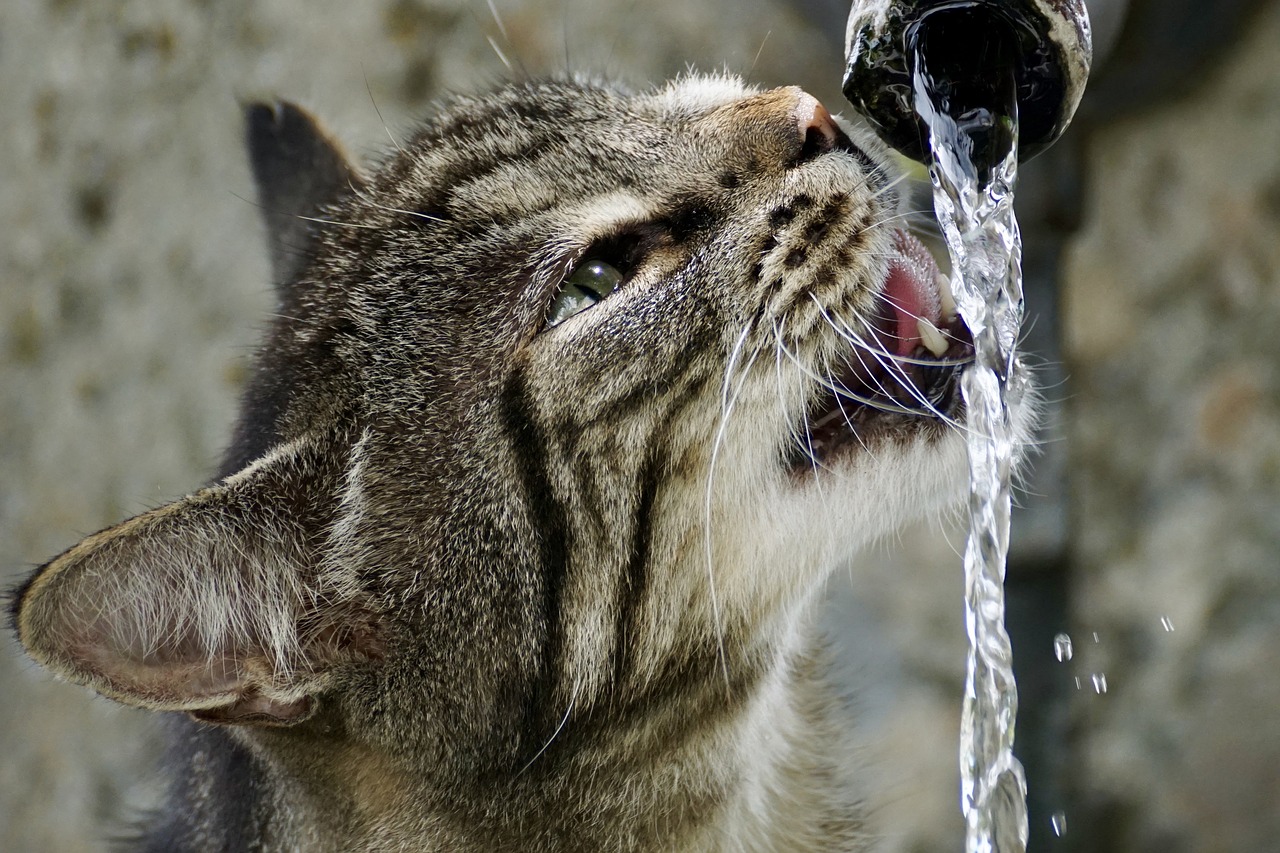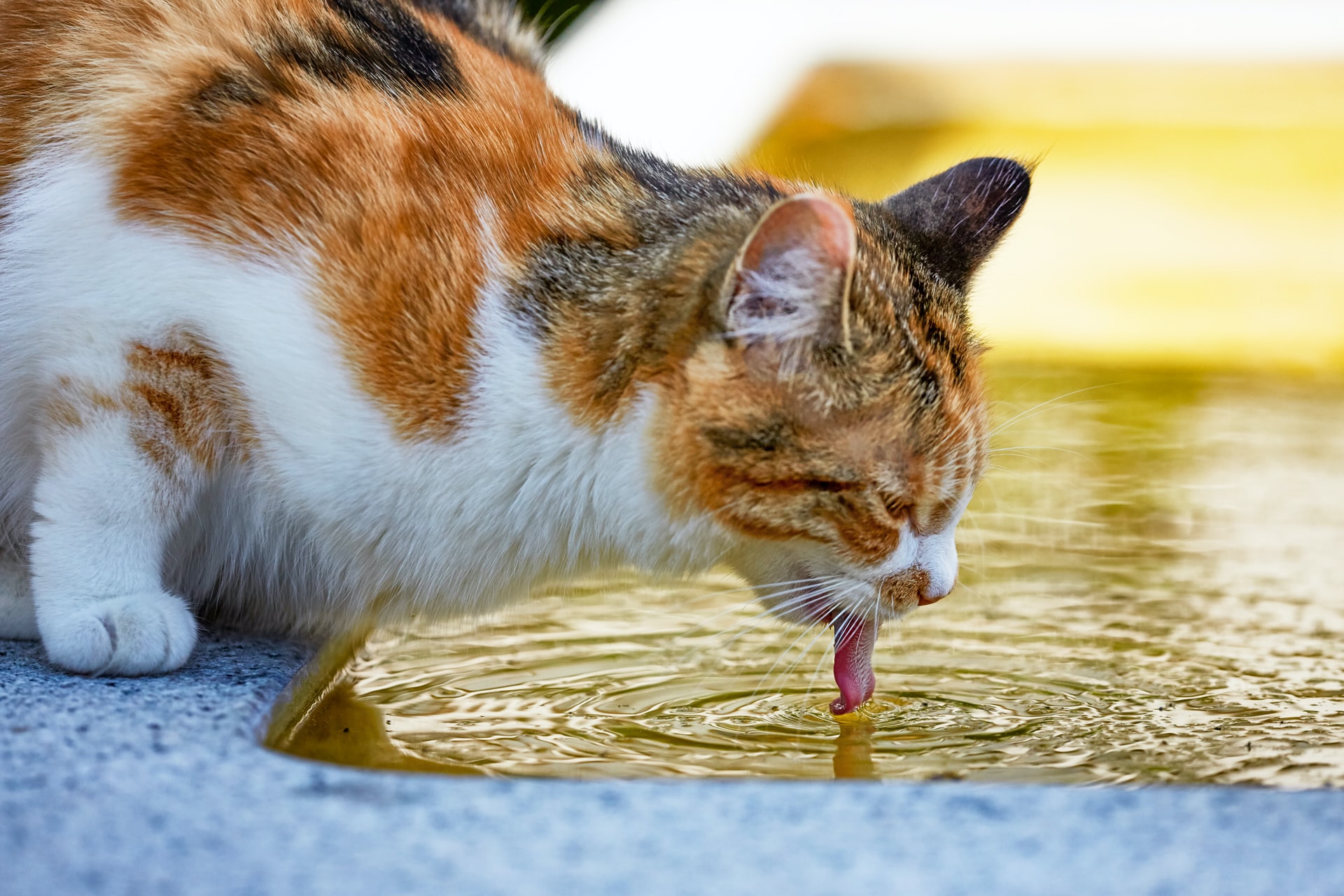Have you ever noticed your cat sneaking trips onto the counter to drink from the tap? Or caught your furry friend sipping from your water glass? If so, cat water fountains might have crossed your mind. These handy automatic water bowls sound trendy. But are cat fountains worth the investment? Let’s find out!
Cats and water
For the most part, cats have a love/hate relationship with water. And, unhappily, that can extend to their drinking habits. Most of our four-legged family members don’t get enough liquid in their daily lives. This can lead to health problems, including urinary obstructions, a severe feline emergency.
But why do cats turn up their noses at their water bowl? There are a few common reasons:
- Position: Some cat water bowls are too low. Older cats coping with arthritis feel uncomfortable bending down to drink.
- Freshness: The longer water sits out, the more dust, fur, and food particles collect in the bowl. Cats are fastidious creatures, and they prefer fresh water sources (such as that glass you just poured).
- Warmth: Does your cat’s water bowl sit in the sun? Like us, they enjoy cooler water for drinking.
Enter the cat water fountain
Cat water fountains ease those common issues. Plus, you’ll see your cat making more trips to the bowl — and actually drinking. Healthy water intake improves their kidney health, flushes unwanted crystals from the bladder, and keeps their coat soft and shiny. Not to mention the bonus of keeping them off the counter and away from your drinking glass.
Types of fountains
Water fountains all work on the same basic principle. A motorized pump circulates water through a filter (or a series of filters), pushing the water up into a bubbler or fountain stream. The water movement keeps it aerated, clean, and cool — appealing to your cat’s senses in the best ways.
In general, you have three choices when it comes to cat water fountains:
- BPA-free plastic: The most commonly available type and relatively resistant to breakage. The PetSafe Drinkwell Fountain ranks as one of the most popular options out there.
- Ceramic: Ceramic’s a little on the fragile side, so not the best option in rambunctious households. PetSafe’s Pagoda Ceramic Fountain for Pets is the ceramic fountain at its best, with two drinking levels.
- Stainless steel: Steel’s the sturdiest of the three options. PetSafe’s Drinkwell 360 provides a shiny steel surface with multiple fountain settings.
Improved health and well-being always tops cat owner lists, but are cat fountains worth it? Let’s take a look at some pros and cons, and you can decide for yourself.

Reasons to love water fountains
The biggest advantage to a cat water fountain is the sound of falling water. It’s that magical siren call that draws your cat in. The concept goes back to the original desert cats our domestic felines evolved from. Their ancestral brains know falling water means “time to drink.” A simple solution to a complicated health problem.
The bonuses don’t stop there, though:
- Water fountains have reservoirs that hold more than an average water bowl. You don’t have to worry about frequent refills.
- Many of the fountains allow you to adjust the speed of the water. (In case you can’t stand the sound of a waterfall.)
- Coconut-shell carbon filters remove dust, dirt, and other unwanted crud from the water. So you and your cat are reassured there’s always clean water in the bowl.
Reasons to skip water fountains
Nothing’s perfect, and cat water fountains do have some drawbacks. At the top of most people’s lists is the need to plug the fountain into an electrical outlet. You won’t find reliable battery-operated fountains on the market. And while some people have outlets near the floor, it’s not a given. You don’t want to create a trip hazard for yourself, but you also want the fountain to remain convenient for your cats.
You also have a few other annoyances to contend with:
- Cat water fountains cost more than a standard water bowl. In addition to the fountain, you need to purchase and replace those filters. It adds up over time.
- Most modern fountains pop into the top shelf of the dishwasher. But the pump? You have to wash that by hand. And if you have fluffy cats, hair can clog the pump quickly.
- Some fountain motors generate more noise than others. And all of them make a horrible grinding sound when water levels drop.
To fountain or not to fountain?
Cat water fountains have gotten more popular in recent years. The trend may represent convenience, but encouraging your cat to drink more also boosts health benefits. Water fountains provide owners with advantages — provided you’re willing to cope with the negative aspects. As you look over the cat water fountain options, think through both sides of the coin. Ultimately, you’ll make the choice that’s best for you and your cat.



